After having success in the field of communications, Vu Hoai Thu still nurtured a plan to star-up her own business. Therefore, she always took advantage of trips abroad to learn about successful business models which could be feasible in Vietnam. Realising the great potential of mushrooms in the domestic market, Thu decided to start-up a business with the fungi.
Sharing her idea, Thu said: “I felt inspired when I was introduced to the successful model of cultivating mushrooms inside the house of two young Americans who use coffee grounds as the materials to cultivate mushrooms. Their model not only produces nutritious food, which is very good for one’s health, but also improves people’s awareness of environmental protection and using waste to produce a new product”.
In Vietnam, although the materials with cellulose for cultivating mushrooms, such as sawdust, corncob and bagasse, are available, the trade has not developed. Mushrooms are mainly imported from China and South Korea. Seeing the great potential, Thu, with her creativeness and strong determination, decided to engage in the trade.
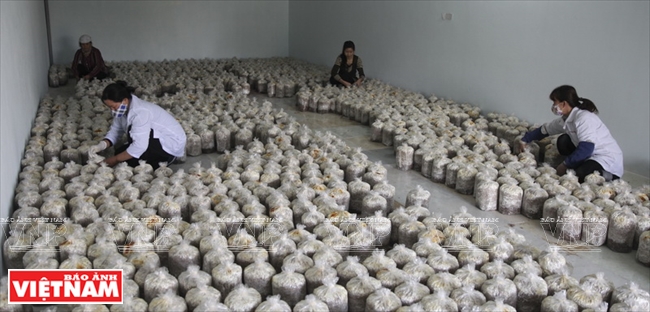
The materials for growing oyster mushrooms.
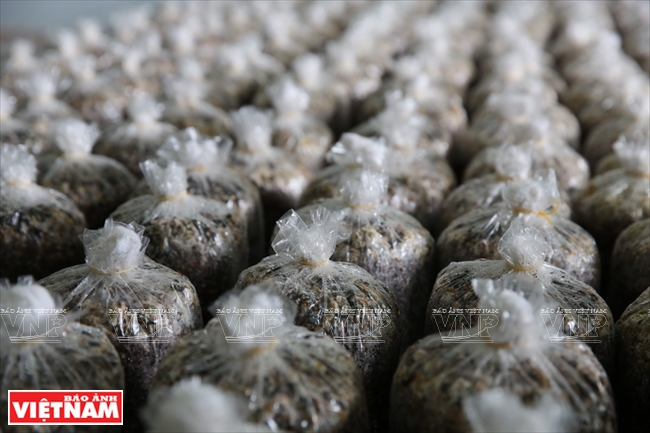
Mushroom spores are kept in rooms with the temperature at 16-18oc.
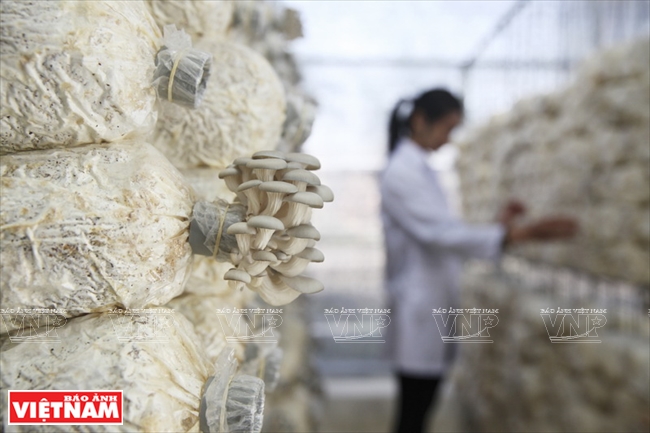
After 4-6 days, mushrooms are harvested for the first time.
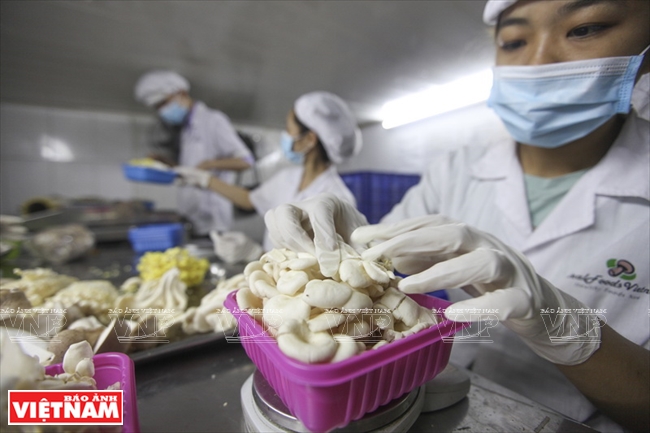
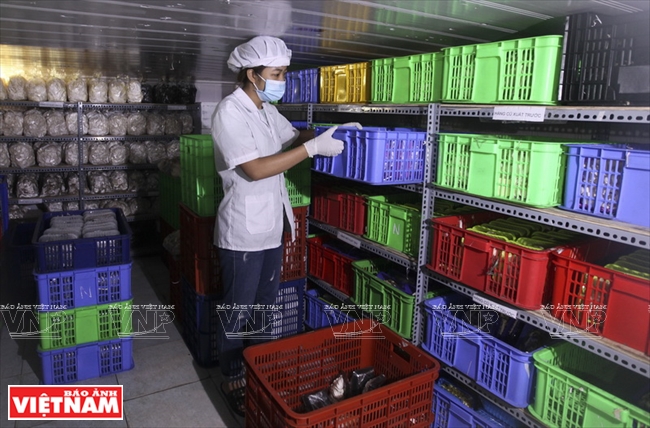
The company pays much attention to preserving mushrooms to ensure the quality of the product.
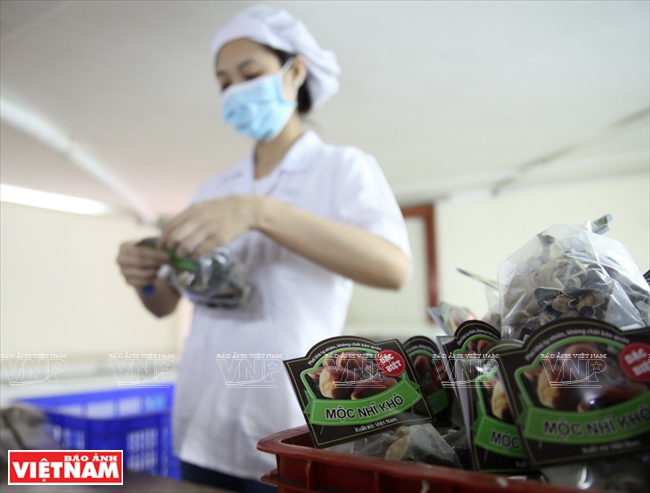
Mushrooms are carefully packaged with clear instructions and origin, ensuring hygiene and food safety..
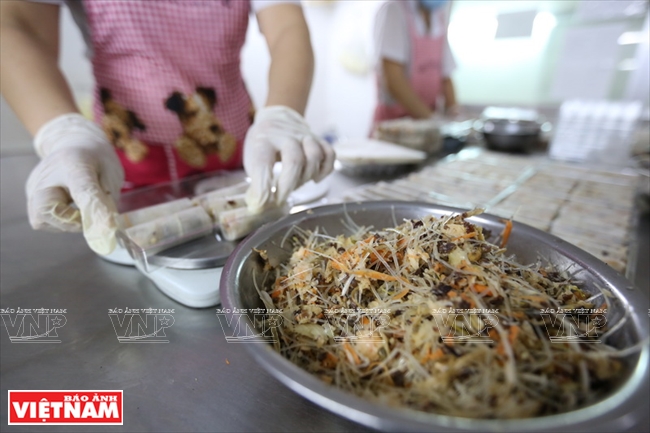
The company’s products are diverse to meet the different demands of customers.
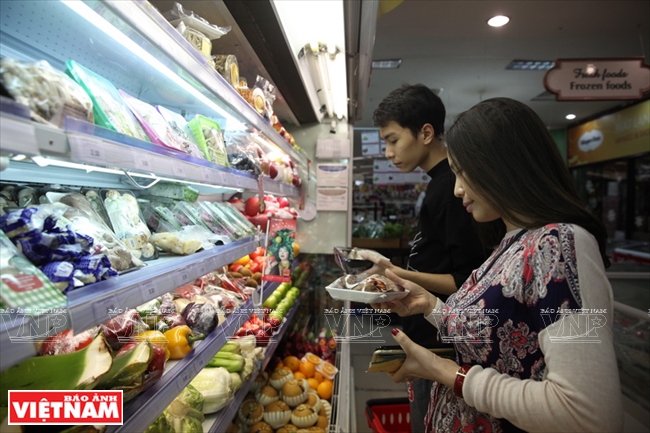
The company’s products are available in supermarkets.
|
After preparing, she established Ideal Foods Vietnam Company in 2012 which specialises in producing and trading mushrooms. The company’s first shops appeared on the streets of Tong Dan, Quang Trung, Doan Tran Nghiep and then a showroom was established at 59 Hang Chuoi street in Hai Ba Trung district, Hanoi.
The company has also coordinated with households in Dong Anh, Thai Nguyen and Phu Tho to produce clean mushrooms and built a distribution system nationwide.
To ensure hygiene and food safety, the company applies a strict production process to all stages, from the materials to production and packaging with clear instructions and origin before selling in the market. Thanks to a sound development strategy, professional marketing and managing policy, the company’s mushroom products have become more popular in the domestic market.
The company has continually renovated and processed many new products from mushrooms, such as mushroom spring rolls, mushroom pork pie, thread mushrooms and others which can compete in the market and bring high rewards. The company also pays attention to making mushrooms for decorative purposes, such as Lingzhi mushroom bonsais with the hope to bring luck, happiness, and longevity to customers.
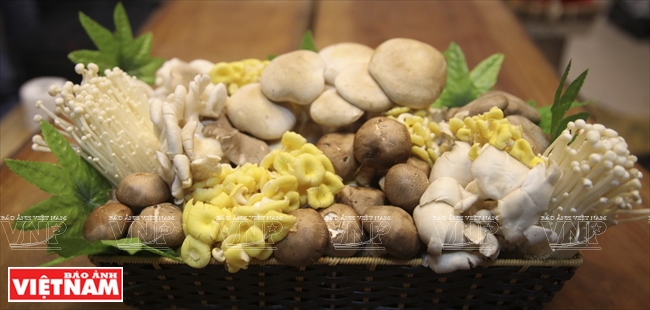
Fresh mushrooms are much sought after by customers.
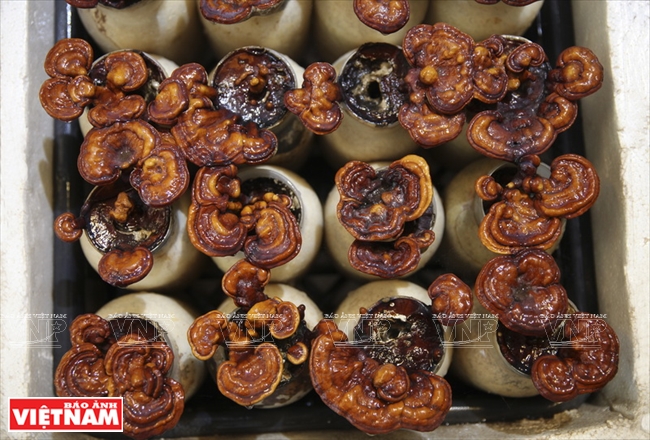
Dried Lingzhi mushrooms.
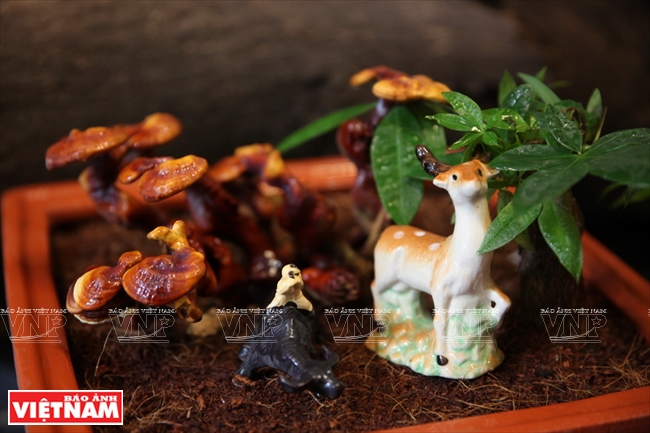
Linhzhi mushroom bonsais for decorative purposes.
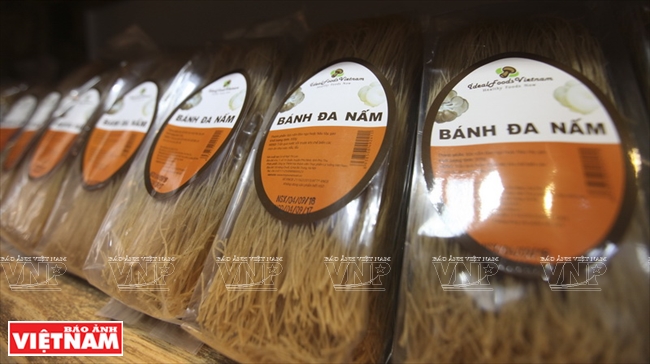
Besides fresh mushrooms, the company also processes many products from mushrooms.
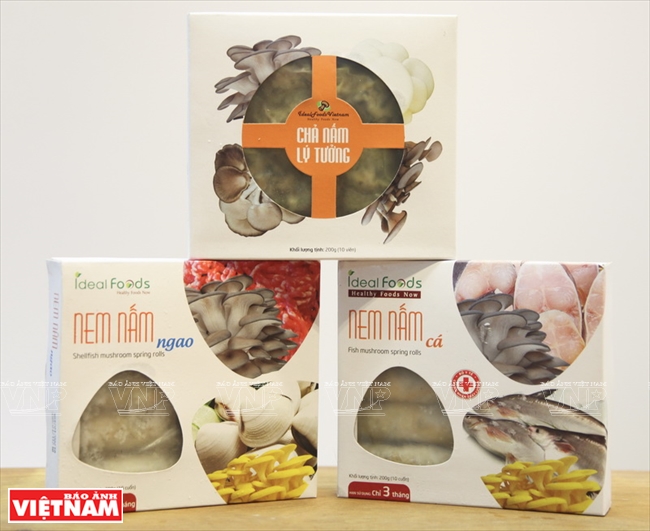
The company’s mushroom spring rolls are favoured by customers. |
In the future, the company plans to open a park with mushrooms in the North where tourists can learn how to cultivate and harvest mushrooms. It will also concentrate on expanding some areas specialising in cultivating mushrooms on a large scale for processing some foods to serve the domestic market and for export to Dubai and Japan./.
The company’s mushroom products are not only sold in traditional markets but also in large supermarkets like Vinmart, Metro, Lotte Mart, Co-op Mart, Aeon Mall and other shops selling clean and safe food.
|
Story: Thuc Hien - Photos: Khanh Long